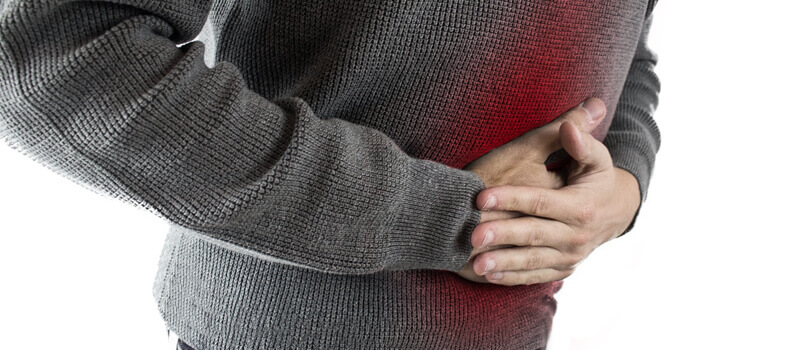11 August, 2021
10 tips to fight gastroesophageal reflux and heartburn

Gastroesophageal reflux (GER) or heartburn is one of the most common digestive symptoms in the Western world. Not only is it uncomfortable, it can be dangerous over the years if not corrected. Let’s see what are the main causes and some remedies for gastroesophageal reflux.
CAUSES OF GASTROESOPHAGEAL REFLUX
The reason why gastroesophageal reflux occurs is that the passage from the esophagus to the stomach, whose entrance is called cardia, is poorly closed and allows gastric content to pass into the esophagus. This can occur for multiple reasons: reflux in pregnancy – because of the pressure that the fetus puts on the belly -, obesity, hiatal hernia, smoking or as a side effect of some medications.
“The reason why gastroesophageal reflux occurs is that the passage from the esophagus to the stomach is poorly closed and allows gastric content to pass into the esophagus”
SYMPTOMS OF GASTROESOPHAGEAL REFLUX
The clearest, most common symptom that gives this pathology its name is heartburn or stomach acidity. However, there are other symptoms of gastroesophageal reflux: regurgitating swallowed food, having nausea and vomiting, coughing, bad breath, sore throat, etc.
WHY IS IT IMPORTANT TO PUT A REMEDY FOR STOMACH ACID?
Gastric reflux can be suffered at any age and should be corrected. Not only because of the discomfort of its symptoms, but rather because, over the years, heartburn, which is only supported by this organ, can affect the walls of the esophagus and lead to Barrett’s esophagus. It is a premalignant disease that, in a small percentage, can degenerate into esophageal cancer.
HOME REMEDIES FOR GASTROESOPHAGEAL REFLUX
Once we have seen what gastroesophageal reflux is and what causes it, here are the 10 tips and “home remedies for gastroesophageal reflux”, how to combat heartburn:
1. Reduce portions: Large meals favor the opening of the cardia, so eating less and more times a day reduces stomach acidity.
IT MAY INTEREST YOU…
– El método del plato: Cómo medir las raciones de forma equilibrada
2. Eat slowly: It takes 20 minutes for the stomach to tell us that it is full. If we eat faster, we can end up eating more than necessary and chewing less, which represents more work for the stomach.
3. Cook softly: Not cooking very heavy food, and controlling the amount of oil used, favors a lighter digestion. Good examples are: baked, boiled, steamed, en papillote, grilled, etc.
4. Sleep favors digestion: Sleep with your head slightly elevated and at least two or three hours after having dinner. This way, we make sure that the digestion is done and there is no risk of gastroesophageal reflux.
5. Avoid pressure on the stomach: We must avoid pressure on the abdominal region; Either due to excess weight, tight clothing at the waist… If there is pressure on the stomach physically, it is easier for the cardia to open and let content pass into the esophagus.
6. Drink infusions: Infusions, such as chamomile or rosemary, help calm heartburn and stomach acidity.
Foods to avoid to prevent heartburn
7. Coffee, alcohol and chocolate: These three foods are irritating to the stomach lining, so they will favor gastroesophageal reflux.
8. Carbonated drinks: Carbonated drinks increase the volume within the stomach and favor its contents to rise towards the esophagus.
9. Condiments: Some condiments, such as spicy or mint, favor heartburn.
10. Fried foods: It goes without saying that fried foods are indigestible and this does not favor the control of gastric reflux.
It is important to make these changes to improve the symptoms of gastroesophageal reflux disease and heartburn. Taking these measures, in the short term, will improve the quality of life of those who suffer from them. In the long run, you can avoid greater harm.






